
The COVID-19 pandemic is “heightening risks across the board. Humanitarian needs are growing. Decades of progress on Sustainable Development are at stake. And social unrest is increasing, thus deepening security risks. Many of the countries in the Global South have been left hanging without financial practical resources. Some middle-income countries face a crushing debt burden as they try to respond.” - António Guterres, United Nations Secretary General
Watch the event in English
Background
COVID-19 has set back advances made across all the Sustainable Development Goals (SDGs). This includes any progress made so far on SDG 16, which aims to foster peace, justice and inclusion. Without progress on SDG 16, achieving other parts of the 2030 Agenda will be even more difficult.
Effective, transparent and responsive governance is inextricably linked to achieving the 2030 Agenda. Without safety and security, it will be difficult to facilitate access to education for all. Without equal access to public services and addressing corruption, many marginalized groups will be denied health services. Without access to justice, disputes related to housing or employment can go unresolved.
The COVID-19 crisis has only highlighted this further as governance failures have resulted in increasing inequalities, deteriorating trust in public intuitions and significant obstacles to accessible services, including health services. An appropriate distribution, use and oversight of power is critical for sustainable development. An effective recovery from COVID-19 requires understanding how the balance of power is changing at local, national and global levels. SDG 16 attempts to address some of these power imbalances and is therefore key for recovery from COVID-19.
We must therefore step up our work to end violence, uphold the rule of law, and strengthen inclusive institutions.
Bringing together the latest research and expertise on the subject, with perspectives from the Global South, this roundtable will:
- distinguish what is helping or hindering countries from achieving SDG 16;
- determine specifically how efforts toward more peaceful, just and inclusive societies are integral to defining COVID-19 recovery; and
- unpack the interlinkages between SDG 16 and the rest of the 2030 Agenda.
Purpose and Objectives
The event will connect policymakers, researchers and other stakeholders to debate the following questions:
- What are emerging trends on SDG 16 (peace, justice and inclusion), with a particular focus on the Global South? How has the COVID-19 pandemic affected progress on this Goal in different contexts?
- Peace, justice and inclusion can support progress on the 2030 Agenda as a whole, including on health, the economy and the environment. What do we know about these ‘SDG 16 interlinkages’ and how can we use them pro-actively as levers to inform recovery?
The event will showcase relevant findings from research collaborations such as:
- Emerging trends on SDG 16 from regional roundtables and thematic e-discussions aimed at amplifying research and perspectives from Latin America, Asia and Africa. Led by Southern Voice.
- SDG 16 interlinkages across the 2030 Agenda. Led by the German Development Institute/Deutsches Institut für Entwicklungspolitik (DIE).
Agenda
Moderator: Mr. Arvinn Gadgil | Director, UNDP Oslo Governance Centre
- 7:30 am - Opening
- H.E. Ms. Adaljiza Albertina Xavier Reis Magno | Minister of Foreign Affairs and Cooperation of the Democratic Republic of Timor-Leste
- H.E. Ambassador Mona Juul | Permanent Representative of Norway to the United Nations
- H.E. Ambassador Rodrigo A. Carazo | Permanent Representative of Costa Rica to the UN
- Dr. Ingolf Dietrich | Commissioner for Sustainable Development, Federal Ministry for Economic Cooperation and Development (BMZ), Germany
- 7:55 am - Global Roundtable Discussion
- Ms. Natasha Palansuriya | Senior Researcher, The Centre for Poverty Analysis
- Dr. Adedeji Adeniran | Director, Governance and Education Research, Centre for the Study of the Economies of Africa
- Dr Carolina Tchintian | Director, Political Institutions Program, Centre for the Implementation of Public Policies for Equity and Growth
- Dr. Anita Breuer | Senior Researcher, German Development Institute / Deutsches Institut für Entwicklungspolitik (DIE)
- 8:45 am - Closing
- Ms. Andrea Ordóñez | Director, Southern Voice
- Mr. Haoliang Xu | Director, Bureau for Policy and Programme Support, UNDP
Further Resources
SDG 16 Trends - Group SDG 16 Trends - Discussions SDG 16 Trends - Key Messages
Panelist Bios
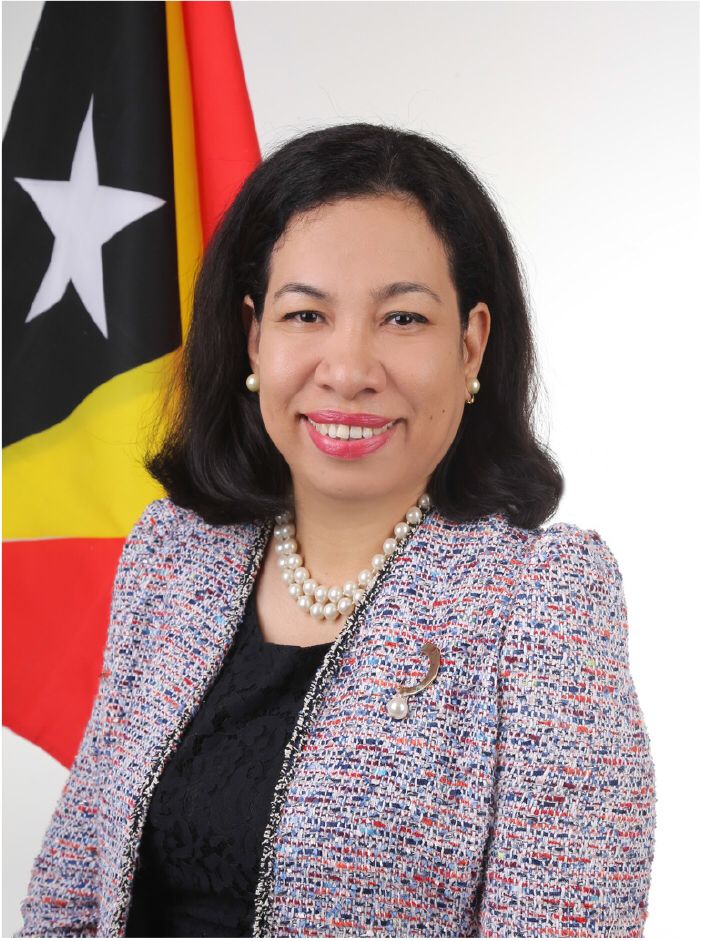 H.E. Ms. Adaljiza Albertina Xavier Reis Magno | Minister of Foreign Affairs and Cooperation of the Democratic Republic of Timor-Leste
H.E. Ms. Adaljiza Albertina Xavier Reis Magno | Minister of Foreign Affairs and Cooperation of the Democratic Republic of Timor-Leste
Ambassador Adaljiza Albertina Xavier Reis Magno known as Adaljiza Magno is widely recognized as a passionate advocate of gender equality and a long-standing human rights activist. She started her professional career with several Non-Governmental Organizations and actively participated in Timor-Leste’s struggle for its right to self-determination and peace.
In 2001, Ambassador Magno was elected as a member of the Constituent Assembly, the body responsible for drafting the Constitution of Timor-Leste. With the restoration of Timor-Leste’s independence in 2002, the Constituent Assembly rechristened itself to the National Parliament where she continued to serve as a member until 2005.
It was in 2005 when Her Excellency Adaljiza Magno was appointed as Timor-Leste’s Vice Minister of Foreign Affairs and Cooperation under the I, II and III Constitutional Government serving three different Prime Ministers. During the III Constitutional Government, she was appointed as Acting/Interim Minister for Foreign Affairs and Cooperation.
In January 2016, Mrs. Magno was appointed as an Ambassador Extraordinary and Plenipotentiary to the Republic of Singapore. However, in 2017 she was re-called to serve as Vice Minister of Foreign Affairs of Cooperation of the VII Constitutional Government. Her term concluded in 2018. She subsequently served as an Honorary Adviser to the Asia New Zealand Foundation. At present, Mrs. Adaljiza Magno is the Minister of Foreign Affairs and Cooperation of Democratic Republic of Timor-Leste.
Mrs. Adaljiza Magno holds a master’s degree in Public Management from Victoria University of Wellington in New Zealand. Her mother tongue is Tetum and she is fluent in Bahasa Indonesia, English and conversant in Portuguese. Born in Timor-Leste, Ambassador Magno is married to Mr. Rosentino Amado Hei and have 2 children - a daughter and a son.
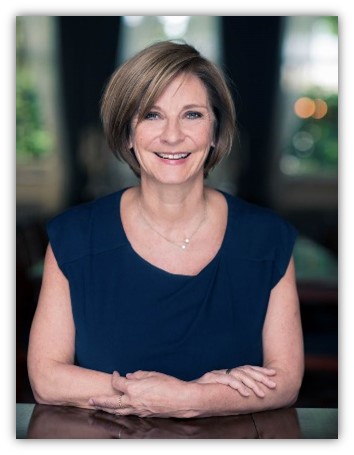 Ambassador Mona Juul | Permanent Representative of Norway to the United Nations
Ambassador Mona Juul | Permanent Representative of Norway to the United Nations
Ambassador Mona Juul was previously Ambassador to the United Kingdom (2014-2018), Director General for Security Policy and the High North in the Ministry of Foreign Affairs (2011-2014), Ambassador and Deputy Permanent Representative at the Permanent Mission to the UN in New York (2005-2010) and Chairman of the 1st Committee of the 61 session of the United Nations General Assembly (2006).
She served as Ambassador to Israel (2001-2005), accredited to Cyprus for the same period. State Secretary/Deputy Foreign Minister at the Norwegian Ministry of Foreign Affairs (2000), Special Advisor/Ambassador/Middle East Coordinator in the Ministry of Foreign Affairs (1997-2000) chairing the AHLC (Ad Hoc Liaison Committee on Assistance to the Palestinians). She was Minister Counsellor at the Norwegian Embassy in Tel Aviv (1994-1997). Her first posting was at the Norwegian Embassy in Cairo (1988-1990).
Mona has been with the Ministry of Foreign Affairs since 1986, during which time she has gained broad diplomatic experience. This includes working in the Cabinet of the Minister of Foreign Affairs (1992-1993) and member of the small Norwegian team that facilitated the secret negotiations between Israel and the PLO leading to the Oslo Agreement.
She holds a Master degree in Political Science from the University of Oslo.
 H.E. Amb. Rodrigo A. Carazo | Permanent Mission of Costa Rica to the United Nations
H.E. Amb. Rodrigo A. Carazo | Permanent Mission of Costa Rica to the United Nations
Mr. Carazo has wide‑ranging experience in politics, international relations, business and law. From 2008 to 2015, he was President of Volta Asesores S.A., having worked as a business professional in industry, commerce, agriculture, tourism and the service sector, and as a business consultant to international organizations. He was a Deputy of the Legislative Assembly from 2002 and 2006, and the first Ombudsman of Costa Rica, a position he held from 1993 to 1997.Between 1984 and 1987, he was a representative of the University for Peace to European offices of the United Nations, and from 1978 to 1980 Special Ambassador of Costa Rica to the United Nations General Assembly and various countries.
Having earned a bachelor’s degree in economic and social sciences and a law degree from the University of Costa Rica, he also holds a doctorate degree in political science and international relations from the University of Geneva.
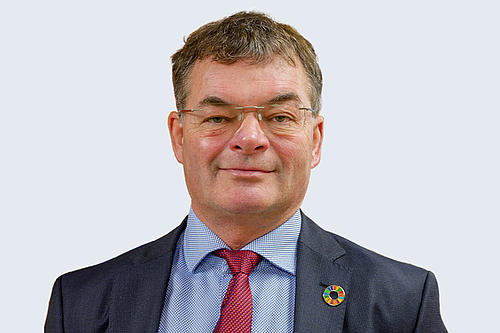 Dr. Ingolf Dietrich | Commissioner for Sustainable Development, Federal Ministry for Economic Cooperation and Development (BMZ), Germany
Dr. Ingolf Dietrich | Commissioner for Sustainable Development, Federal Ministry for Economic Cooperation and Development (BMZ), Germany
Dr Dietrich heads Directorate 41 at the BMZ, which is responsible for the 2030 Agenda, poverty, inequality, democracy, rule of law, governance, human rights, gender equality and education. The responsibilities involved include providing sector policy guidance in the areas mentioned and active involvement in numerous global initiatives and programmes.
Since 2014, Dr Dietrich has been the Commissioner for Sustainable Development at the BMZ. He is responsible for the BMZ's position in the national and international processes on the 2030 Agenda. As the BMZ's coordinator for sustainable development, he coordinates work at the BMZ on the implementation of the 2030 Agenda for Sustainable Development across directorates-general. Other tasks include further developing Germany's development policy and aligning it with the Sustainable Development Goals, further developing the German government's Sustainable Development Strategy and supporting the partner countries of German development cooperation in their efforts to align their national policies with the implementation of the 2030 Agenda and monitor implementation progress.
In the area of governance, the focus is on corruption control and prevention, domestic resource mobilisation, and the use of public funding in a manner that is efficient and transparent and delivers development benefits. This includes efforts to build the capacity of effective, transparent, accountable and inclusive institutions at all levels.
Dr Dietrich's set of responsibilities also includes the areas of respect for human rights, gender equality, and inclusion of persons with disabilities, so that a life of dignity for all – and thus, sustainable development – can become reality.
Another part of his work is support for education, which is a key area of Germany's development cooperation. Before he assumed his current post, Dr Dietrich was responsible, among other things, for areas such as energy, biodiversity, water, urban development and mobility, and headed the divisions "Southern Africa" and "Policy issues of bilateral development cooperation". Contact and exchange with lobby organisations, the private sector, civil society and national/international academia constitutes a significant aspect of Dr Dietrich's work.
Dr. Dietrich studied agricultural science at Munich Technical University and Berlin Technical University. He holds a doctorate in agricultural economics from Munich Technical University. He is an alumnus of the GDI postgraduate programme.
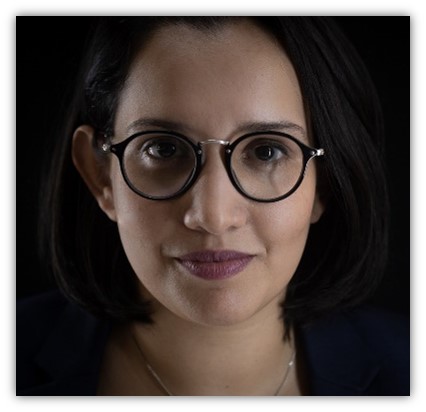
Ms. Natasha Palansuriya | Senior Researcher, The Centre for Poverty Analysis
Natasha Palansuriya is a Senior Research Professional working on the thematic areas of Social Cohesion and Reconciliation, and Diasporas and Development. Her most recent work at CEPA was as Lead Evaluator for the final evaluation of Strengthening Civil Society in Sri Lanka: Empowering Women for Inclusive and Sustainable Transitional Justice and Reconciliation (July – August 2020), and Technical Specialist for an Independent Final Evaluation of OHCHR’s Thematic support on the Transitional Justice Mechanisms in Sri Lanka. She has also successfully designed and coordinated the Short Course on Migration for two consecutive years.
Concurrently, she is completing her PhD at City, University of London, where her research focuses on the Sri Lankan Tamil diasporas transnational engagement in the transitional justice process of Sri Lanka. Natasha, also, has a master’s in international politics and Human Rights from City, University of London where her dissertation explored the post-war reconciliation process of Sri Lanka.
Expertise: transitional justice, post-war reconciliation, diaspora engagement and transnational civil society.
 Dr. Adedeji Adeniran | Director of Governance and Education Research, Centre for the Study of the Economies of Africa
Dr. Adedeji Adeniran | Director of Governance and Education Research, Centre for the Study of the Economies of Africa
Dr. Adeniran is the Director of Education, Governance research, & Senior Fellow at CSEA. He holds a Ph.D from the University of Witwatersrand, South Africa.
He also holds a Masters’ and Bachelor’s degree in Economics and Educational Management/Economics from the University of Ibadan. He previously worked as a seasonal Lecturer in the Department of Witwatersrand, as a Data Analyst at the Analyst Data Services and Resources (ADSR) and as a Teaching Assistant in the Department of Economics University of Ibadan.
His research interests cuts across macroeconomics, development finance, public economics and policy analysis and experimental economics.
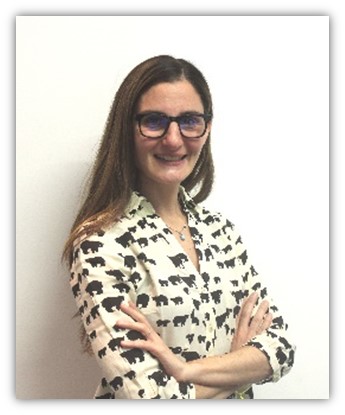 Dr Carolina Tchintian | Director of the Political Institutions Program, Centre for the Implementation of Public Policies for Equity and Growth
Dr Carolina Tchintian | Director of the Political Institutions Program, Centre for the Implementation of Public Policies for Equity and Growth
Graduated in Political Science (University of Buenos Aires), Master in Public Policy (Universidad Torcuato Di Tella) and PhD in Political Science (Rice University). Her research areas are: comparative politics, political institutions, and electoral management and behavior. She is the director of Political Institutions at CIPPEC.
 Dr. Anita Breuer | Senior Researcher, German Development Institute / Deutsches Institut für Entwicklungspolitik (DIE)
Dr. Anita Breuer | Senior Researcher, German Development Institute / Deutsches Institut für Entwicklungspolitik (DIE)
Anita Breuer holds PhD in Political Science from the University of Cologne. Her primary research interests involve governance, accountability and participatory politics. Since 2011, she holds a position as senior researcher at the German Development Institute / Deutsches Institut für Entwicklungspolitik (DIE) where she currently directs an inter-disciplinary research project on “Implementing the 2030 Agenda: Integrating Growth, Environment, Equality and Governance” financed by the German Federal Ministry for Economic Cooperation and Development. Within this project, her research focuses on the political and institutional preconditions for sustainable development. Her research has been published in international peer-reviewed journals such as World Development, Democratization, Sustainability and the Journal of Information Technologies and Politics, among others.
 Ms. Andrea Ordóñez | Director, Southern Voice
Ms. Andrea Ordóñez | Director, Southern Voice
Andrea Ordóñez is Director of Southern Voice and has been part of the initiative since inception in 2012. She leads the implementation of the network strategy and programmes. She co-edited the book “Southern Perspectives on the Post-2015 International Development Agenda” with Debapriya Bhattacharya.
Her work focuses on better fostering better knowledge systems to support sustainable development. Andrea has developed research projects for the public sector and numerous international organizations.
 Mr. Haoliang Xu | Director, Bureau for Policy and Programme Support, UNDP
Mr. Haoliang Xu | Director, Bureau for Policy and Programme Support, UNDP
Haoliang Xu was appointed UN Assistant Secretary-General and UNDP Assistant Administrator and Director for the Bureau for Policy and Programme Support by the United Nations Secretary-General in July 2019.
Previously, Mr. Xu was UN Assistant Secretary-General and UNDP Assistant Administrator and Regional Director for Asia and the Pacific since September 2013.
Prior to this, he served as Deputy Regional Director of the Regional Bureau for Europe and the Commonwealth of Independent States in New York since 2010; UN Resident Coordinator and UNDP Resident Representative in Kazakhstan (2007-2010); Country Director in Pakistan (2005-2007); Deputy Resident Representative for Programme, Pakistan (2004-2005); Country Manager and Senior Deputy Resident Representative, UNDP Timor-Leste (2002-2004); Deputy Resident Representative, UNDP Iran (2000-2002); Programme Manager, Regional Bureau for Asia and the Pacific, New York (1997-1999); Programme Officer/Junior Professional Officer, UNDP Kazakhstan (1997-1999).
Before joining the UN, Mr. Xu was a computer-aided design engineer with Louis Berger International Inc. in New Jersey and an assistant lecturer at Tongji University in Shanghai, China.
Mr. Xu, a Chinese national, holds a Bachelors in Engineering from Tongji University in Shanghai, and a Masters’ of Science in Management from the Stevens Institute of Technology (USA). He also holds a Masters’ of International Affairs in Economic Development and Policy Analysis from Columbia University (USA).
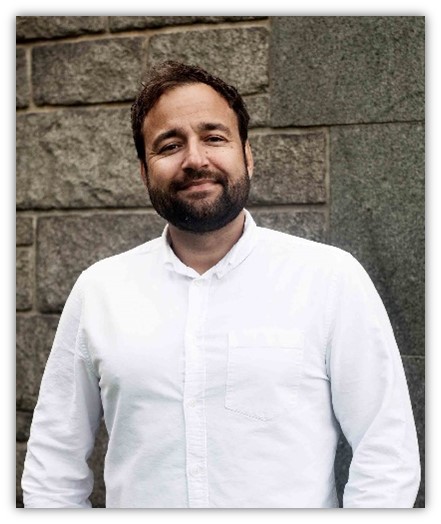 Mr. Arvinn Gadgil | Director, UNDP Oslo Governance Centre
Mr. Arvinn Gadgil | Director, UNDP Oslo Governance Centre
Arvinn has been engaged in governance and development policy for almost 20 years. Before joining UNDP he was Policy Director for International Development Policy in the Norwegian Ministry of Foreign Affairs. Recently he has focused on issues such as domestic resource mobilization, addressing illicit financial flows, anti-corruption, fiscal stability, and global economic governance. He has also led a system-wide development policy analysis network to improve Norwegian development policy engagements.
Arvinn has been Senior Director of the Norwegian Refugee Council and has held a number of board positions in academic institutions, civil society organizations and inter-governmental institutions. He held the roles of State Secretary, Deputy Minister and Junior Minister for international development, climate and environment over a period of six years in Norway. Trained as a career diplomat, he has also worked in Afghanistan and Sri Lanka.
Arvinn holds degrees in development studies, economics and international studies from the UK and Norway.
